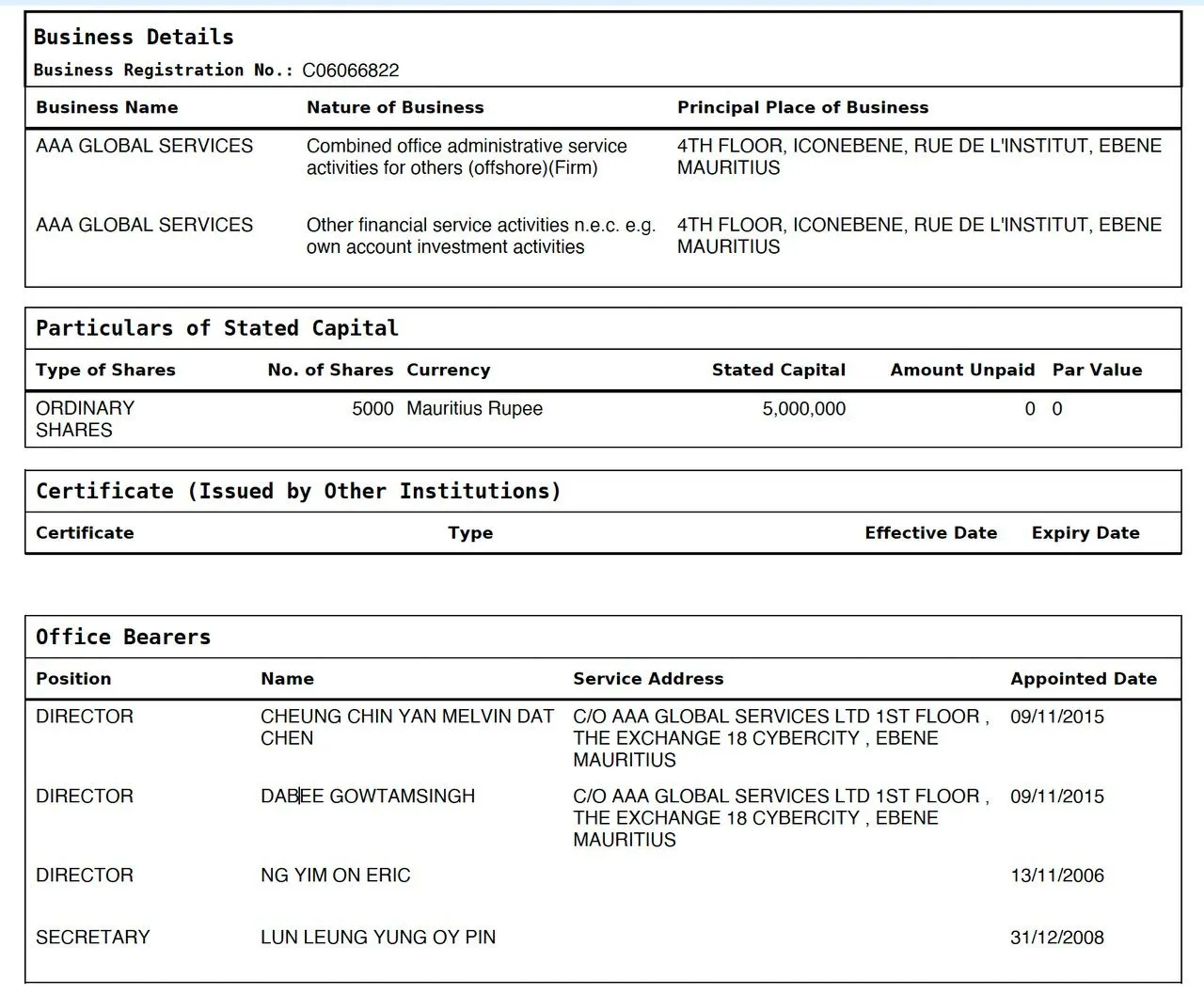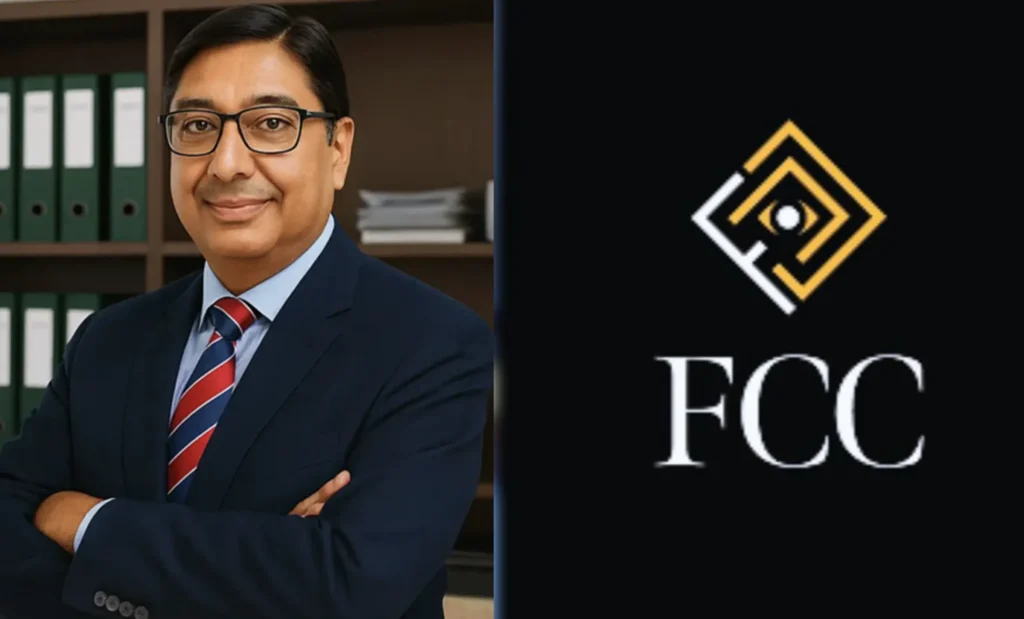On September 10, 2025, the day AfriNIC’s contested board election opened, former chairman Benjamin Adzenyamebeye Eshun walked into the Financial Crimes Commission at the Réduit Triangle in Mauritius. He was not alone. Flanked by his lawyer, he spent much of the day answering investigators’ questions. By the time he left, a fragile registry already mired in disputes faced a new set of allegations.
Eshun is a veteran of the institution he was now describing under oath. A Ghanaian internet governance figure, he led AfriNIC from 2020 to 2023, a period defined by court battles, political infighting, and policy stalemates. Colleagues credit him with holding the registry together when lawsuits filed by Cloud Innovation threatened to drain its finances and fracture its membership. Today he is acting chief executive of the Ghana Research and Education Network, but his testimony returned him squarely to AfriNIC’s unfinished crisis.
What he disclosed was pointed. Corporate filings show that Receiver Gowtamsingh Dabee, installed by the Supreme Court of Mauritius in February to restore AfriNIC’s governance, also serves as a director of AAA Global Services Limited, a management company incorporated in Mauritius in 2006. AAA Global Services counts among its clients Cloud Innovation Ltd, the very firm that has spent years suing AfriNIC in Mauritian courts.
To Eshun, the arrangement was indefensible. The man appointed to guide AfriNIC back to stability, he argued, was directly connected to its most aggressive adversary. He told investigators that Dabee had exceeded his mandate by protecting Cloud Innovation’s status as a full AfriNIC member despite ongoing litigation. “It is a conflict of interest,” he said, “and it compromises the receivership.”
Eshun’s testimony did not stop there. He alleged that Dabee pushed through elections in violation of AfriNIC’s bylaws. Instead of filling eight non-executive board seats gradually over three years, as the rules require, all were forced into a single hurried cycle. The safeguards designed to ensure continuity and prevent capture were swept aside. What should have been a cautious act of renewal became, in Eshun’s words, “rocambolesque.”
Gowtamsingh Dabee, the white elephant AfriNIC should never have had
When the Supreme Court of Mauritius appointed Gowtamsingh Dabee, now 58, as Receiver of AfriNIC, the decision was framed as the solution to a crisis. His résumé looked reassuring: fellow of the Chartered Association of Certified Accountants, associate of the Institute of Chartered Accountants in England and Wales, MBA from the University of Surrey, with a career spanning a Big Four firm in Port Louis, Andersen Worldwide in Dubai, and even a board seat at Azure Power Global Limited, a renewable energy company traded on the New York Stock Exchange. For a registry battered by lawsuits and paralysis, his credentials promised stability.
But the road to his appointment tells a different story. In September 2023, the Supreme Court first installed Vasoodayven Virasami as AfriNIC’s Official Receiver. Virasami was tasked with managing the organization’s governance crisis and ensuring that the court’s orders were respected, particularly the freeze on new IP address allocations. For a time, he oversaw AfriNIC’s day-to-day operations and was meant to keep it afloat during receivership.
According to court filings, Dabee’s name had been floated even then. The applicant allegedly suggested him during the proceedings, but the judge selected Virasami instead. When Virasami was later dismissed, Dabee’s name resurfaced. This time, he was chosen, and in February 2025 he was formally installed as Receiver.
Once in office, his decisions quickly raised alarm. He wrote to the Registrar of Companies to quietly recognize Cloud Innovation Ltd as a registered member and shareholder of AfriNIC. He directed AfriNIC to issue an invoice reinstating Cloud Innovation as a resource member, even though the case terminating their membership was still pending before the Court of Appeal. He introduced a new voting system that allowed sweeping use of powers of attorney. He appointed to the Nominations Committee a lawyer tied to Cloud Innovation, under the chairmanship of King’s Counsel Sir Simon Davenport.
The perception of conflict only deepened when corporate filings confirmed Dabee’s directorship at AAA Global Services Ltd. Records from the Mauritius Registrar of Companies (Business Registration C06066822) show Dabee has served as a director since 09 November 2015, alongside other directors, with the firm’s capital base set at 5 million Mauritian rupees. AAA Global Services is a management company that provided the registered address for Cloud Innovation Ltd, incorporated in April 2013 under number C115736. Cloud Innovation holds more than 6 million IP addresses, less than 1 percent of which are used in Africa. The rest are rented abroad in breach of AfriNIC’s charter. Over the years it has filed more than 50 lawsuits against the registry, including a motion for liquidation in July 2025.

That liquidation attempt was blocked only after an Amicus Curiae brief was filed, signed by more than 200 African organizations and individuals. It was a rare moment of unity, with regulators, operators, civil society, and technical experts standing together to argue that AfriNIC was created to serve Africa’s networks, not to be gutted in Mauritian courtrooms.
The elections of June 2025 added fuel to the fire. More than 800 suspicious powers of attorney appeared in a community of just 2400 members. Some discovered their names had been used to cast proxy votes they never authorized. South Africa’s Internet Service Providers Association filed a criminal complaint. ICANN itself, in a letter dated 25 June 2025, warned Dabee that his process violated bylaws, that member data had been accessed without authority, and that AfriNIC’s legitimacy was collapsing. By July, both ICANN and TISPA had gone to court against him. As one long-time member remarked, “there is no smoke without fire.”
Dabee’s defenders note that no court has accused him of personal misconduct. He has served in other high-trust roles, including liquidations of ARMD Exploration and Jonah Mining (Mauritius) Limited in 2017. His wife, Renuka Devi Dabee, has been a Puisne Judge of the Supreme Court since 2019, respected for her long career in bankruptcy law. In larger jurisdictions, these overlaps might not attract notice. In Mauritius, a compact legal ecosystem where the same names recur in sensitive disputes, they have become combustible context.
For now, Dabee still holds the benefit of the doubt. The 7 hours of testimony at the Financial Crimes Commission on 10 September remain sealed. Until those records are made public, he continues in office. But AfriNIC continues to bleed. Each election held under disputed rules, each procedural shortcut, each revelation of ties to Cloud Innovation, strips away legitimacy.
AfriNIC, the root of Africa’s digital independence, risks rotting at its base. If it collapses, it will not be remembered as an accident of law but as the consequence of choices. Inmates at Beau Bassin Prison, the largest in Mauritius, like to say they can see the faces of tomorrow’s arrivals before the gates even open. History answers slowly, but it always answers.

